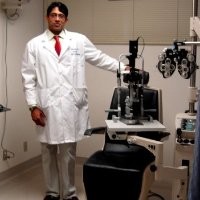Recent insights from a research team led by the University of California, Irvine, have unveiled a significant connection between the frequency of sleep apnea episodes during the rapid-eye-movement (REM) sleep stage and the severity of verbal memory impairment in older adults at risk for Alzheimer’s disease. Verbal memory, the cognitive skill to retain and recall information delivered via spoken words or written text, is especially susceptible to Alzheimer’s disease.
The research, recently made available online in Alzheimer’s Research & Therapy journal, has established a distinct relationship between the severity of sleep apnea – a sleep disorder characterized by pauses in breathing – and cognitive decline. The study found that higher ratios of sleep apnea during REM sleep, as compared to non-REM sleep, correlated with poorer memory performance.
Bryce Mander, the co-corresponding author and UC Irvine associate professor of psychiatry & human behavior, highlighted the significance of these findings. He explained that the majority of sleep is non-REM, which can potentially result in a lower average severity of sleep apnea than is typically observed during REM sleep. Therefore, current evaluation standards that don’t focus on sleep-stage-specific apnea severity risk misdiagnosing and undertreating those at risk.
Ruth Benca, co-corresponding author and professor and chair of psychiatry and behavioral medicine at Wake Forest University School of Medicine, added an interesting gender aspect to the findings. She noted that women are more likely to have a higher proportion of their apneic events in REM sleep than men, potentially contributing to a higher risk for Alzheimer’s disease in women.
The research involved 81 middle-aged and older adults from the Wisconsin Alzheimer’s Disease Research Center, 62 percent of whom were female. All participants were at high risk and underwent polysomnography – a comprehensive sleep test that records various physiological parameters – and verbal memory assessments. The results underlined the critical role of apnea events during REM sleep in contributing to verbal memory decline, particularly in individuals with genetic predisposition and parental history of Alzheimer’s disease.
Mander concluded, “Our findings underscore the complex interplay between sleep apnea, memory function, and Alzheimer’s risk. Recognizing and addressing REM-specific events is vital for devising proactive, personalized approaches to assessment and treatment that are in tune with individual sleep patterns.”
The research team also consisted of Kitty K. Lui, San Diego State University/University of California, San Diego joint doctoral program in clinical psychology student, and faculty and graduate students from UC Irvine, UC San Diego, the Wisconsin Alzheimer’s Disease Research Center, and the University of Kentucky. The study was funded by various grants from the National Institute on Aging, the National Institutes of Health’s Ruth L. Kirschstein National Research Service Award, and the National Center for Advancing Translational Sciences’ Clinical and Translational Science Awards Program.


Comments are closed for this post.